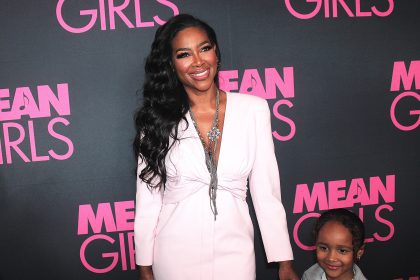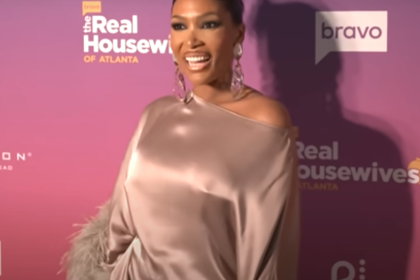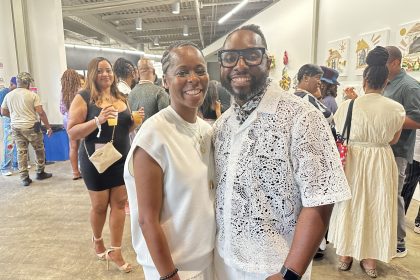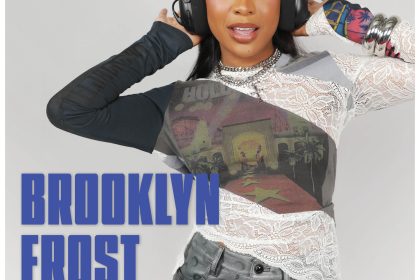 Nas has an air of mystery about him. During a recent listening session at Digiwaxx in Harlem, N.Y., Nas was quiet and a bit reserved before previewing songs from his new collaborative effort with Damian Marley, Distant Relatives. He greeted supporters and tastemakers with respect, but was far from outgoing or celebratory. His stoic demeanor changed only slightly when he nodded his head as the DJ played several tracks from the album. Because Nas’ guarded emotions are rarely betrayed by his body language, he’s an enigma until he decides to pick up a mic.
Nas has an air of mystery about him. During a recent listening session at Digiwaxx in Harlem, N.Y., Nas was quiet and a bit reserved before previewing songs from his new collaborative effort with Damian Marley, Distant Relatives. He greeted supporters and tastemakers with respect, but was far from outgoing or celebratory. His stoic demeanor changed only slightly when he nodded his head as the DJ played several tracks from the album. Because Nas’ guarded emotions are rarely betrayed by his body language, he’s an enigma until he decides to pick up a mic.
Ironically, Nas’ mild-mannered behavior is strengthened by his keen ability to observe his surroundings and brilliantly express himself through lyrics. His magnum opus, Illmatic, stood alone in hip-hop during a year (1994) when classic albums were released by OutKast (Southernplaylistic), Notorious B.I.G. (Ready to Die), Scarface (The Diary) and Gang Starr (Hard to Earn).
“The first time I heard Illmatic, I could see how Nas was bringing something different to the hip-hop game,” Damian Marley says. “That album has influenced other rappers to this day.”
Although some critics maintain that Illmatic has overshadowed Nas’ entire career, its impact on hip-hop and pop culture remains evident 16 years after its initial release. The album has even been studied by professors at respected universities across America. In March, Duke University held a class called, “Sampling Illmatic,” that focused on the making of the album.
“When colleges and universities begin to study Illmatic, their [professors] said listen to this album because you can’t find this in the textbook,” Nas said during an interview at Quad Studios in New York. “You can’t find this [info] anywhere else. This is the ugly truth. This is what was happening in America during the ‘90s. How have we changed since then? But when I think about it, I’m still messed up by Illmatic in a good way. This was this thing that I wrote about my life and just put it out there. My life can now be studied. Michael Eric Dyson wrote a book, Born to Use Mics: Reading Nas’s Illmatic, and it’s pretty serious. The book was a big help for me during the recording of this new album.”
Distant Relatives is unlike anything that has ever been created before in urban music. It marks the first time that a mega hip-hop star and a well-respected reggae artist have collaborated on an entire album.
“In the early ‘80s, the whole style of reggae blended in with hip-hop,” Nas recalls. “Back then, we had hip-hop versions of reggae that came from Just-Ice and KRS-One. But there are a lot changes that took place on this [Distant Relatives] album. I want people to listen to the music. I want people to really hear what Damian and I are saying,” he says.
Nas and Damian Marley’s powerful wordplay, use of live instrumentation and natural cohesiveness could earn the duo a Grammy. Although accolades would be well deserved, the two combined forces because of their love for music and their desire to bring awareness to the beauty and struggles of Africa.
“Our ancestors influenced our music and our lifestyle,” Marley says. “When it comes to hip-hop and reggae, it’s all poetry. That’s the same spoken word tradition that began in Africa. Music is very influential. It’s something that breaks barriers, class and culture. It’s the heartbeat of the people. I hope an architect can listen to my music and be inspired. Music needs to encourage. Communication is the biggest thing that influences change. I hope this album sparks conversation and communication.”
A purposeful album that remains consistent from start to finish, Distant Relatives has been released in an era where artists seem less concerned about making hit albums, as long as they are able to produce top selling ringtones and downloads.
“When ringtones first came out, it was a new thing so a lot of people in the music business were excited,” Nas says. “The record companies knew that they could make a lot of money from the ringtones. A lot of record deals where signed and you had a lot of one-hit wonders. But that’s cool, because the artists who make complete albums are the ones who are important. I’ve never been discouraged about new technology in music because I make albums. Album catalogs are still the most solid part about the record industry.”
With 12 albums to date, Nas has amassed one of the most impressive catalogs in hip-hop. But despite his success, Nas regrets not finishing high school and recently told a group of students at the Boys and Girls Club’s 43rd National Keystone Conference that he will pursue his diploma.
“I found myself bored in the classroom,” Nas admits. “I wasn’t prepared for a lot of things [when it came to school]. But there are so many educated black kids who do graduate that are underestimated. The media is not showing how these kids are excelling. But for those who are not excelling, we need to do something to help them want to learn.”
An avid reader, Nas has always taken a didactic approach to rhyming. If he put down the mic and walked away from hip-hop today, he would be remembered as one of the greatest American musicians of all time. But even at 36, Nas has a lot to say in hip-hop and continues to look forward to making more albums. In fact, creating music and touring served as his refuge during his turbulent and highly publicized divorce from singer Kelis.
“I just want to do these albums,” he says. “Music is all I need to keep me happy right now.”
In 2006, Nas was unhappy with hip-hop and the direction it seemed to be taking. He made a bold statement by naming his album, Hip-Hop is Dead. His sentiments have somewhat changed four years later, but he doesn’t regret challenging his peers to make better music.
“Hip-hop is doing what it does,” Nas says. “It took brothers and sisters off the streets and made them into entrepreneurs, allowed them to hire other people and made them role models for other youngsters to get in the game. There are a lot of good new artists right now. There will always be good rap and bad rap. I said hip-hop was dead a few years ago and it served its purpose like a mother f—-.”
That’s why Nas’ low-key persona is so effective. On the occasions in which he does speak, his words command attention and force everyone to listen.










